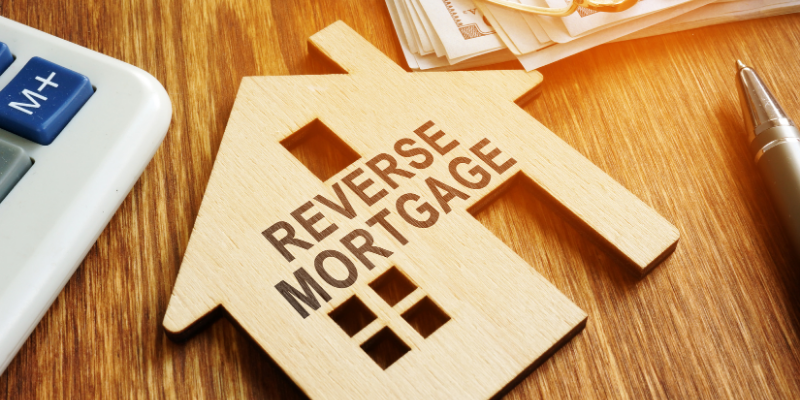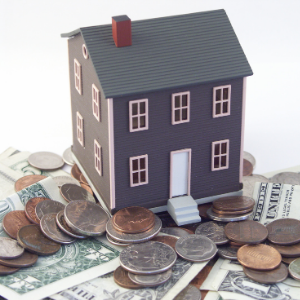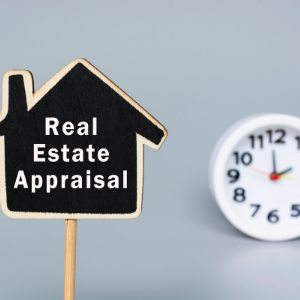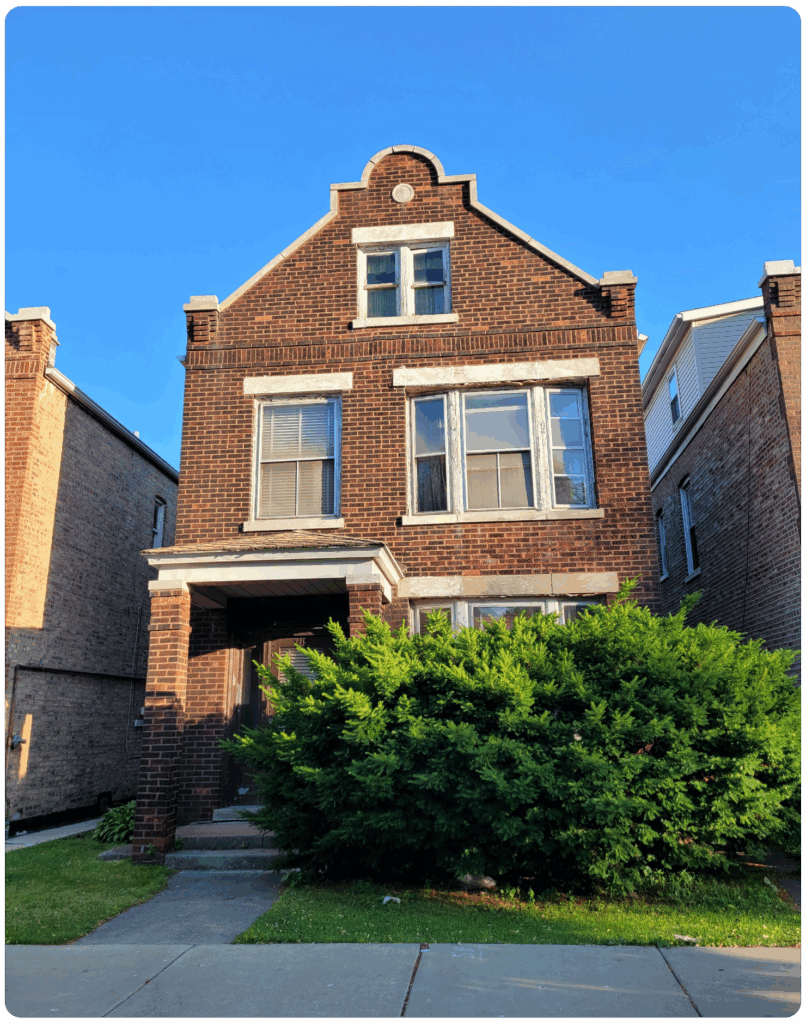
Understanding Reverse Mortgages: A Complete Guide
Understanding reverse mortgages is critical when considering selling your Illinois home with this loan. A reverse mortgage enables homeowners, often aged 62 and up, to turn a portion of their home equity into cash without selling the property or incurring additional monthly expenses.
This financial instrument may be particularly tempting to pensioners seeking to boost their income. It’s important to understand that your age determines the amount you can borrow through a reverse mortgage, current interest rates, and the appraised value of your house.
Like other states, Illinois requires homeowners to meet specific criteria and obligations, such as maintaining the property and paying property taxes and insurance. Selling a house with an outstanding reverse mortgage takes careful consideration because the debt is payable upon sale.
Understanding these factors can help ensure a smooth transaction and maximize financial gains. Homeowners should also consult a HUD-approved housing counselor or financial advisor to fully understand the ramifications of selling a property under these conditions, including estate planning and potential sale proceeds.
Financial Implications of Reverse Mortgages for Homeowners

When considering selling a property in Illinois with an existing reverse mortgage, evaluating the financial ramifications is critical. A reverse mortgage enables homeowners aged 62 and up to turn a portion of their home equity into cash without selling the property or making monthly mortgage payments.
However, when selling such a property, the proceeds must first be used to pay down the remaining loan debt, which includes any reverse mortgage-related interest and fees. Homeowners should be aware that if the sale price is less than the amount owed on the reverse mortgage, they may be required to pay the difference unless they have chosen a non-recourse loan agreement, which ensures that neither they nor their heirs owe more than the home’s market value at the time of sale.
It’s also vital to think about prospective closing fees and real estate professional commissions, which might affect the net profit from selling the home. Understanding these financial considerations will assist homeowners in making informed decisions regarding whether and how to list their property on the Illinois real estate market.
Evaluating the Pros and Cons of Selling Versus Keeping Your Property
When deciding whether to sell your Illinois home with a reverse mortgage, examining the benefits and drawbacks of selling versus keeping the property is critical. Selling your house can bring instant financial relief, allowing you to pay the reverse mortgage sum and even walk away with more money.
This option may be particularly enticing if the value of your house has grown after you took out the reverse mortgage. On the other side, owning your property may allow you to remain in a familiar location without relocating. This is especially useful if the local real estate market is adverse to sellers.
Maintaining ownership also entails keeping any future appreciation in home value, which may benefit heirs. However, staying put necessitates ongoing maintenance and costs connected with property taxes, insurance, and maintenance.
Whether to sell or keep your Illinois property requires considering personal financial goals, lifestyle choices, and market conditions. Before deciding, each alternative should be carefully considered in terms of prospective benefits and obstacles.
Key Benefits of Selling a Home with a Reverse Mortgage
Selling a property in Illinois with a reverse mortgage provides many major perks that might make the process more appealing to homeowners. One key benefit is the possibility of erasing existing mortgage debt, which can significantly increase financial flexibility.
Sellers can optimize their sales earnings without worrying about outstanding mortgage payments. Furthermore, selling in these circumstances might enhance income flow, allowing homeowners to invest in new companies or plan for a comfortable retirement.
The process is frequently less restrictive than traditional sales, providing greater comfort and convenience. Furthermore, homeowners may profit from good market conditions, which could increase the property’s worth at acquisition.
Understanding these benefits allows sellers to strategically position themselves in the real estate market and make informed decisions that align with their financial objectives.
Preparing Your Home for Sale with a Reverse Mortgage
Preparing your Illinois home for sale using a reverse mortgage necessitates careful planning and strategic renovations to optimize its attractiveness and value. Begin by completely clearing each room, since potential buyers must visualize themselves in the place free of distractions.
Consider making necessary repairs and changes, such as replacing leaking faucets or adding a fresh coat of neutral paint, to create a move-in-ready setting to attract more bids. Curb appeal is essential; clean the exterior by pruning bushes, mowing the lawn, and adding welcoming touches such as colorful flowers or a fresh welcome mat.
Because reverse mortgages sometimes involve older properties, replacing outmoded items such as kitchen appliances or bathroom fixtures can significantly improve marketability. Staging your home efficiently showcases its qualities and allows potential buyers to visualize themselves living there.
It’s also crucial to understand any special duties related to your reverse mortgage, such as repaying the loan upon sale, which can affect pricing strategy. Working with an experienced real estate professional familiar with reverse mortgages in Illinois can provide valuable insights into local market trends and assist you in navigating any issues that may arise when selling your house under these unusual circumstances.
Effective Marketing Strategies for Homes Listed with a Reverse Mortgage
Strong marketing methods are essential for attracting potential buyers and ensuring a successful transaction when selling your Illinois home with a reverse mortgage. Begin by emphasizing your property’s distinct qualities and benefits set it apart in the competitive real estate market.
Professional photography and virtual tours may highlight your home’s best features, attracting prospective buyers seeking value and charm. Use online listing platforms, social media outlets, and local real estate websites to reach a larger audience.
It is critical to deal with an experienced professional who understands the complexities of selling a house with a reverse mortgage; they can provide vital insights into pricing tactics and negotiate effectively on your behalf. Crafting captivating property descriptions highlighting the home’s enticing features and compliance with reverse mortgage rules will help alleviate buyer concerns immediately.
Participating in open houses or virtual showings allows potential buyers to get a sense of the home firsthand, enhancing their interest and likelihood of making an offer. Despite the difficulties of reverse mortgages, following these strategic marketing methods may increase your house’s exposure and desirability in the Illinois housing market.
How to Choose the Right Professional for Reverse Mortgage Sales
Selecting the appropriate real estate professional for selling your Illinois home with a reverse mortgage is critical to a successful transaction. Look for an expert specializing in reverse mortgage sales with substantial experience negotiating the complexity of these particular transactions.
An expert specializing in reverse mortgages will understand the unique requirements and obstacles involved, such as dealing with lien payoffs and working with lenders. Choosing someone experienced with the Illinois real estate market is critical, as they can provide valuable insights into pricing methods and marketing tactics designed to attract potential buyers.
Practical communication skills are crucial; you want an expert who can clearly explain each procedure step and keep you updated throughout the transaction. In addition, be sure that your selected professional is familiar with local legislation governing reverse mortgage transactions so that they can assist you in meeting any legal duties.
Hiring a qualified and experienced real estate expert will make you better prepared to sell your house under a reverse mortgage agreement.
Understanding Market Trends Affecting Home Sales with Reverse Mortgages

When selling a property in Illinois with a reverse mortgage, it’s critical to recognize market trends that can significantly impact the sales process. Reverse mortgages enable homeowners, often seniors, to access the equity in their houses while maintaining ownership; nevertheless, when it comes time to sell, these aspects must be carefully considered.
Several factors influence the Illinois real estate market, including interest rates, housing demand, and economic conditions. These factors impact property values and buyer interest. Sellers should understand how rising or falling interest rates may impact potential purchasers’ capacity to obtain financing.
Furthermore, recognizing local housing demand is critical; a high-demand location may result in faster sales and potentially higher offers, whereas areas with lower demand may necessitate clever pricing and marketing efforts.
Observing larger economic conditions can also help sellers predict changes affecting house sale timetables and pricing strategies.
By staying current on market trends, sellers in Illinois can better negotiate the intricacies of selling a house with a reverse mortgage.
Common Challenges When Selling Homes with Reverse Mortgages
Selling a property with a reverse mortgage in Illinois involves navigating many unique obstacles that must be resolved. One major challenge is grasping how the steps involved in repaying a reverse mortgage differ from those of traditional mortgages.
For conversations with potential buyers to proceed smoothly, homeowners must provide precise details about their loan balance and the interest accrued over time. Additionally, given that reverse mortgages target older adults, there may be qualms regarding whether all participants fully grasp the fiscal consequences and legal responsibilities associated with those transactions.
Another widespread challenge arises if there is an equity shortfall due to depreciation in property value over time or contraction of profit after deducting sale-related costs due to accrued interest on the loan. In addition, working with lenders often involves tedious attention to detail when submitting necessary documents and obtaining lien releases, which adds another layer of difficulty to an already complex selling procedure.
These issues require proactive strategies, including engaging relevant professionals. These strategies enable homeowners to optimize sales earnings while ensuring compliance with obligations incurred during home-selling.
Overcoming Buyer Concerns About Purchasing Homes with Existing Liens
When selling your Illinois property accompanied by a reverse mortgage, addressing potential purchasers’ concerns about existing liens is paramount. Buyers might dread dealing with a house burdened with reverse mortgage debt due to lengthy processes or hidden costs.
To mitigate these issues, ensure all records concerning lien satisfaction at closing are current and clear. Saying the sale will bring in funds sufficient to cover any outstanding debts will help immensely, but explaining profits alongside precise information on reverse mortgages will also work wonders.
Employing an experienced professional who deals with reverse mortgages will calm buyers and assist them by talking to all relevant parties. Additionally, obtaining an early preliminary title report can prompt quick resolution of discovery-basal tract troubled lien difficulties, thereby saving time and outstripping timeline benchmarks.
With these strategies in place, sellers can efficiently manage buyer concerns and enhance ease during the transaction process when selling homes encumbered with reverse mortgages.
If navigating the sale of a home with a reverse mortgage feels overwhelming, A Team Real Estate Solutions buys houses for cash in Illinois, helping you skip all the intricacies and hassle while making the process smooth and stress-free.
Distinguishing Between Types of Buyers Interested in Properties with Liens
When selling an Illinois home encumbered by a reverse mortgage, it is vital to recognize different types of buyers interested in properties burdened with liens. Recognizing these buyer categories can profoundly affect your approach to marketing the property.
These properties attract cash buyers or real estate investors because they can close quickly and are often willing to deal with complications from existing liens. These buyers face different risks and handle red tape differently, so these sellers are usually associated with lower asking prices.
Additionally, first-time homebuyers may be interested if they qualify for special lending programs tied to homes with reverse mortgages, but they typically require more help during the buying process. Conversely, other mainstream purchasers could be discouraged by complex legal issues that must be resolved along with lien clearance before purchase.
By identifying these buyer segments, sellers can structure their marketing and negotiations to appeal to those most prepared to navigate the intricacies surrounding homes in reverse mortgage situations in Illinois.
The Role of Appraisals in Selling Homes Under a Reverse Mortgage

When selling a house in Illinois using a reverse mortgage, it is necessary to appreciate the role of the appraisal. An appraisal determines the property’s market value, essential when setting a competitive offering price and meeting lender expectations.
During reverse mortgage transactions, an appraisal establishes how much equity remains in the property vis-a-vis the loan balance on it; therefore, this appraisal serves both parties’ interests, especially sellers’ interests, in assessing potential sales proceeds and informing them about their potential losses beforehand so that prudent decisions can be made before undertaking costly engagements like advertising.
Moreover, lenders utilize estimates to confirm that the revenues generated from the sale of a property will clear off any remaining reverse mortgage debt. Consider making changes that increase your home’s aesthetic appeal and value during an evaluation.
An experienced appraiser can further assist you by providing current trends in real estate markets, which enable better pricing for your home during the selling season. Knowledge of all these factors greatly helps make sound decisions while dealing with the complexities often posed by reverse mortgages.
Navigating the Legal Aspects of Reverse Mortgages in Illinois
Legal issues about reverse mortgages require understanding state-specific laws and federal policies governing the matter; hence, it is advisable for Illinois residents to review state legislation alongside federal regulations first. Homeowners contemplating selling their homes with a reverse mortgage balance must comprehend aspects outlined in their loan documents, which often indicate settling the balance upon transfer of ownership.
Relying on a real estate professional in Illinois experienced in such transactions is essential when dealing with a reverse mortgage’s complicated payback processes and state and federal regulatory compliance.
Additionally, consultation with an attorney specializing in Illinois real estate law will help you untangle legal difficulties associated with your reverse mortgage, thus preventing challenges during the sales process.
Analyzing how property taxes, liens, and other financial obligations related to your purchase impact closing is key to a successful closing. Understanding these laws prevents complications that may arise during the sale and guarantees protection as a homeowner.
Safeguarding Your Interests: Legal Considerations for Homes Sold with Reverse Mortgages
It is advised to seek legal support when selling a home with a reverse mortgage in Illinois to protect one’s interests. Due to particular financial obligations tied to a reverse mortgage, deregulation turns selling such homes into an arduous task, which fluctuates its ease or difficulty proportionately based on compliance regulations.
A real estate and reverse mortgage attorney will ensure that you have all the information needed on loan balance repayments, lien situations, negotiation of state-specific rules on liens about sales, and more. An expert lawyer can help you navigate interactions with potential buyers and lenders while complying with federal or state legal requirements for your financial protection.
Moreover, legal counsel could assist in reviewing all sale documents, including any contracts, to protect against disclosure shortcomings or incomplete paperwork that could lead to unanticipated challenges. Implementing these steps increases your odds of success after selling a house in Illinois under a reverse mortgage obligation.
Tax Considerations for Selling Homes with Reverse Mortgages in Illinois
Understanding tax implications is essential when selling a home in Illinois backed by a reverse mortgage. Generally, proceeds realized from selling residential property in Illinois attract no income tax liability. Still, consideration should be given to possible capital gains accruing on such transactions.
Possible capital gains tax applies if your property has appreciated a lot since you bought it, although some exclusions can reduce this amount. The IRS allows individuals to claim a principal residence exclusion of up to $250,000, or $500,000 for married couples filing jointly, which can reduce the taxable income from the sale.
In addition, certain modifications to your home or payments for medical bills that fall under home medical expenses may change your financial liabilities due to my taxes. Consulting with an expert in Illinois law will help you navigate reverse mortgages and federal regulations, and it can save you money while ensuring legal compliance during the complex process of selling your house.
Evaluating Offers: Selling Your Home with an Existing Reverse Mortgage
To avoid losing money, every offer must be evaluated carefully when selling an Illinois home with an active reverse mortgage. To begin, check with the bank about how much they will charge overall and whether there are any costs above the basic reverse mortgage repayment fee.
This information is crucial because it determines the overall value you get from selling the house. While assessing offers, focus on those that surpass or come as close as possible to this compensation value.
Evaluate elements such as the price of the offer, contingencies, and qualifications of the buyer to determine which offer is most favorable from an economic standpoint and for the likelihood of closure. Work alongside your professional because they might have knowledge of market dynamics and will help you with a good negotiation plan.
It is essential to look at timing as well. Some buyers may find closing date flexibility less complicated than others. This could influence carrying costs if you need more time to pay the reverse mortgage before closing the sale. By evaluating all offers and understanding how each offer will impact your current reverse mortgage situation, it becomes possible to make strategic decisions that help achieve financial goals while remaining compliant with legal statutes in the state of Illinois.
How Do I Sell My Home If I Have a Reverse Mortgage?
A clear understanding of processes and factors to consider when selling a house encumbered by a reverse mortgage ensures efficient transactions in Illinois. The first step involves contacting your lender holding the reverse mortgage for details on loan payoff amounts, including principal, interest accrued, and other fees.
This will help you determine the minimum sales price to satisfy your obligations. After that, consider an Illinois real estate professional with experience selling properties encumbered with reverse mortgages, as they can help maneuver local market and regulatory hurdles.
Establish a competitive listing price for the home that also satisfies the balance due on the reverse mortgage. Distinctive marketing is essential—promote features that appeal to buyers and highlight the benefits of purchasing a home with a pre-calculated reverse mortgage payoff.
Enter discussions with all financial documents organized, and be frank about the position due to the reverse mortgage. Once an agreement is reached, work closely with your attorney and real estate professional throughout closing to guarantee any required deposits are appropriately managed.
Following these critical strategies allows you to sell your Illinois home effectively, even if a reverse mortgage burdens it.
What Happens When a Home with a Reverse Mortgage Is Sold?
To guarantee a smooth transaction, specific steps must be followed while selling a house with a reverse mortgage. First, it is essential to note that funds from the sale of the house in Illinois will primarily be directed toward settling the reverse mortgage lien amount.
This includes paying any associated charges and interest related to the loan. Before marketing the property, homeowners or their successors must contact the lender for a payoff statement to ascertain how much is owed against the loan before settlement.
After an offer is accepted and escrow has been opened, any remaining equity may be retained by the homeowner or passed down to heirs after satisfying the outstanding balance of reverse mortgage debt. Sellers must negotiate difficulties with experts specializing in real estate transactions involving reverse mortgages so that all rules and angles about Illinois laws are correctly observed.
In addition, awareness of these regulations and timelines can improve efficiency in settling down in a home with a reverse mortgage, thereby ensuring financial interests and peace of mind.
Do You Have to Pay Capital Gains on a Reverse Mortgage?

Suppose you are contemplating selling your property in Illinois, particularly one with a reverse mortgage. In that case, it is essential to understand the tax implications of such an action, including capital gains taxes. A reverse mortgage permits homeowners to access equity in their property without making immediate full repayments; however, the debt must be cleared upon home sale.
It is important to note that reverse mortgage proceeds do not constitute taxable income or directly trigger capital gains taxes.
However, any profit above—and not less than—the IRS principal residence exclusion thresholds would be subject to capital gains taxes. In other words, single filers can claim $250,000 while married couples filing jointly can claim $500,000. Determine potential liabilities by evaluating your home’s adjusted basis, including the purchase price and improvements made.
Selling a house under a reverse mortgage presents specific legal challenges; thus, working with a tax advisor specializing in Illinois real estate law helps mitigate potential pitfalls.
How Long Do You Have to Sell a House with a Reverse Mortgage After Death?
For reverse mortgages in Illinois, the timeframe for selling the home after the borrower passes away is crucial. Generally, heirs need to sell the property within six months to offset the balance of the reverse mortgage loan.
Lenders sometimes offer extensions on this period, but as mentioned earlier, it is essential to act fast. Notifying the lender about the homeowner’s death triggers this period.
After notification, the house may be appraised to establish its market value. To increase potential buyers’ interest, heirs should immediately advertise and list the property at competitive prices.
In some cases, heirs can approach lenders for an extension; however, these tend to be very arbitrary and often require proof that reasonable efforts have been made to sell the house. Knowledge of current market dynamics and association with knowledgeable local professional can expedite transactions significantly.
Fulfilling obligations guarantees optimal financial performance for heirs trying to manage home sales in Illinois after mortgages mature or expire, while still abiding by timelines provided in contracts. This ensures prudent management of both time-bound conditions set by reverse mortgage agreements and legal timelines set before them.
If you’re feeling overwhelmed by the complexities of selling a house with a reverse mortgage, A Team Real Estate Solutions is here to help. We buy homes for cash in Peoria, no matter the condition or loan situation—including properties with reverse mortgages. You can skip the paperwork headaches, professional fees, and long wait times. With a simple, stress-free process, A Team Real Estate Solutions helps Peoria homeowners close quickly and move forward with peace of mind. Contact us at (708) 608-0420 to get your cash offer!
Helpful Illinois Blog Articles
- How Much Does It Cost to Sell a House in Illinois
- Can I Sell My House at Auction in Illinois
- How To Sell A House In Poor Condition In Illinois
- Guide To Short Selling Your Home To A Relative In Illinois
- Guide To Repairing Fire-Damaged Houses In Illinois
- Can My Ex-Partner Sell Our House Without Consent In Illinois
- Guide To Selling Your Home By Owner In Illinois
- Understanding Appraisal Required Repairs In Illinois Real Estate
- How Long Can You Leave Your Property Unoccupied
- How To Legally Sell Your Parents’ House In Illinois Using Power Of Attorney
- How To Opt Out Of An HOA In Illinois
- Affordable Housing Options In Illinois: Discover The Cheapest Places To Live
- Navigating Home Sales During Forbearance In Illinois
- Renovating A House Before Selling in Illinois
- Navigating a Home Purchase Before a Sale in Illinois
- Handling Delinquent HOA Payments in Illinois
- Understanding Capital Gains Tax on Home Sales in Illinois
- Can You Sell a Rental With Tenants in Illinois
- Understanding Closing Costs For Rental Property In Illinois: A Comprehensive Real Estate Guide
- Guide To Selling A House With Outstanding Property Taxes In Illinois
- How To Successfully Sell A Storm-Damaged House In Illinois
- Optimize Your Real Estate Budget With The Illinois Housing Excise Tax Calculator
- How To Sell Your Illinois Home With A Reverse Mortgage: Essential Tips And Insights
- Understanding Hospital Liens On Your Illinois Home: What Homeowners Need To Know
- Essential Equity Insights For Selling Your Home In Illinois

| MORTGAGE LOANS | MORTGAGE LENDERS | HOME LOAN | HOME EQUITY CONVERSION MORTGAGE | HECM | CREDIT |
| CREDITORS | ILLINOISANS | STATE OF ILLINOIS | OLDER ADULTS | SENIOR CITIZEN | INSURANCE PREMIUMS |
| INDEBTEDNESS | REAL PROPERTY | CREDIT UNION | CONSUMER | HOMEOWNER’S INSURANCE | TELEPHONE |
| PHONE | ANNUITY | U.S. | THE UNITED STATES | U.S. FEDERAL GOVERNMENT | FEDERAL GOVERNMENT |
| STATUTORY LIENS | ATTORNEY GENERAL | OFFICE OF THE ATTORNEY GENERAL | U.S. DEPARTMENT OF HOUSING AND URBAN DEVELOPMENT (HUD) | MORTGAGE INSURANCE | FINANCIAL INSTITUTION |
| FEDERAL HOUSING ADMINISTRATION | CONVEYANCE | JOINT TENANT | JOINT TENANCY | PHONE NUMBER | REALTOR |
| MONEY | MATURITY DATE | LONG-TERM CARE INSURANCE | LONG-TERM CARE | LIFE INSURANCE | INVESTMENT |
| ILLINOIS GENERAL ASSEMBLY | FRAUD | FLOODING | FLOOD | TERMS AND CONDITIONS | |
| UNIFORM COMMERCIAL CODE | TITLE INSURANCE | TAX DEFERRAL | SHORT SALE | REVOLVING CREDIT | REFINANCE |
| REAL ESTATE OWNED | NEWS | TENANCY | ESTATE TAXES | ESTATE TAX | HOA |
| HEALTHCARE | HECM LOANS | BONA FIDE | PROPERTY AND CASUALTY | PROPERTY AND CASUALTY INSURANCE | FLOOD INSURANCE |
| DOMICILE | DEFERRAL | HOME EQUITY CONVERSION | OF THE LOAN | THE LOAN IS | REVERSE MORTGAGE LENDERS |
| EQUITY CONVERSION MORTGAGE | TYPE OF REVERSE MORTGAGE | A REVERSE MORTGAGE LOAN | REVERSE MORTGAGE LOAN AND | HOME EQUITY CONVERSION MORTGAGES | HOME EQUITY CONVERSION MORTGAGE |
